Your Cart is Empty
Living in a Tent Full-Time: The Ultimate Guide to Sustainable Outdoor Living
Key Takeaways
- Is it possible? Yes, with high-quality canvas tents and proper off-grid sanitation.
- Best Tent Types: Canvas Cabin or Wall tents offer the durability and insulation needed for 4-season living.
- Must-Have Gear: Stoves, Composting toilets, gravity water filters, and solar power stations are non-negotiable for comfort.
- Top US Spots: National Parks and public lands provide the best scenery and community for full-timers.
Living in a tent full-time might seem like an extreme lifestyle choice, but it is a growing movement for those seeking freedom. This path offers a unique way to connect with the great outdoors, reduce your carbon footprint, and live a simpler, intentional life. However, success in the wild depends entirely on your preparation and your gear.
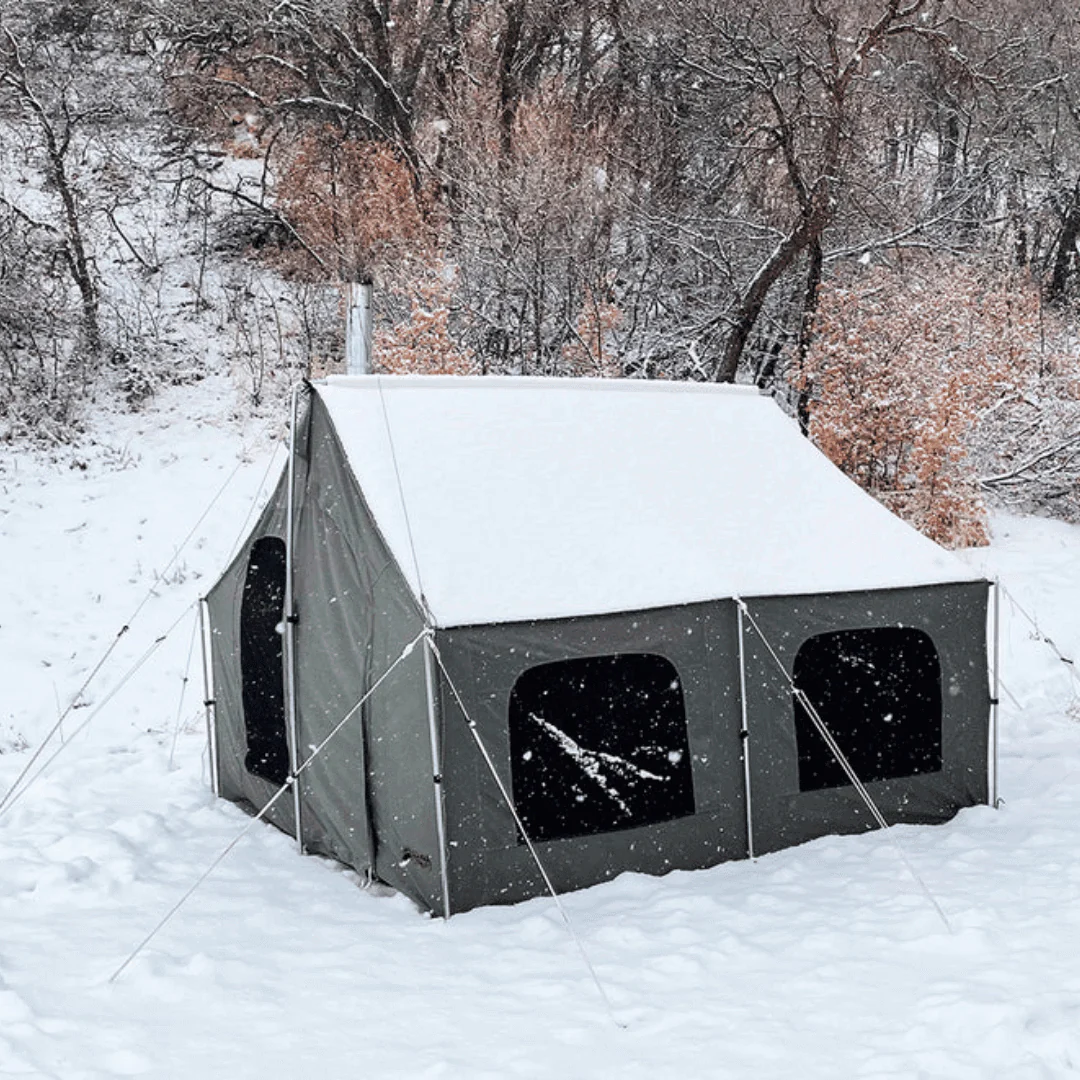
Is Living in a Tent Full-Time Actually Possible?
Direct Answer: Living in a tent full-time is entirely possible by utilizing heavy-duty canvas shelters, off-grid power systems, and sustainable waste management. This lifestyle requires adapting to local climates through proper insulation and ventilation. For example, thousands of digital nomads and "homesteaders" successfully live in high-quality bell or cabin tents year-round across the United States.
With the right mindset, living in a tent is highly rewarding. The secret lies in choosing gear that functions as a semi-permanent home rather than temporary camping equipment. You must learn to adapt to changing weather conditions and maintain your setup for long-term integrity.
Choosing the Best Tent for Year-Round Living
When transitioning to permanent tent life, standard nylon tents won't suffice. Canvas tents, specifically wall and bell styles, are the gold standard for durability and natural insulation. Among these, Kodiak Canvas Cabin Tents are top-rated for their spaciousness and all-season capability.
1. Canvas Cabin Tents
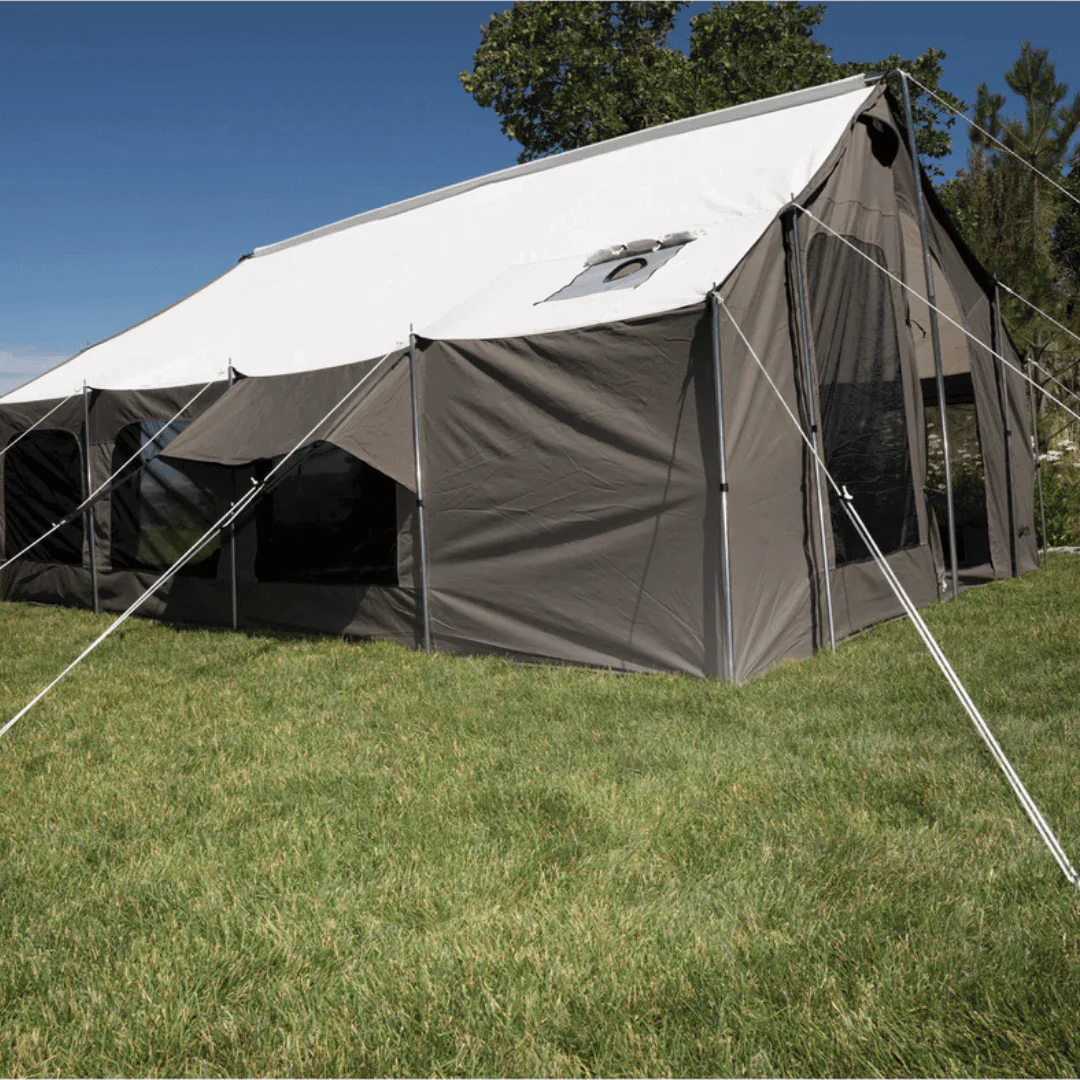
A Canvas Cabin tent by Kodiak Canvas provides a home-like experience with vertical walls and high ceilings. This design makes it easier to install furniture and move around comfortably. Their heavy-duty materials ensure they stand up to high winds and heavy snow loads better than recreational tents.
2. Bell Tents
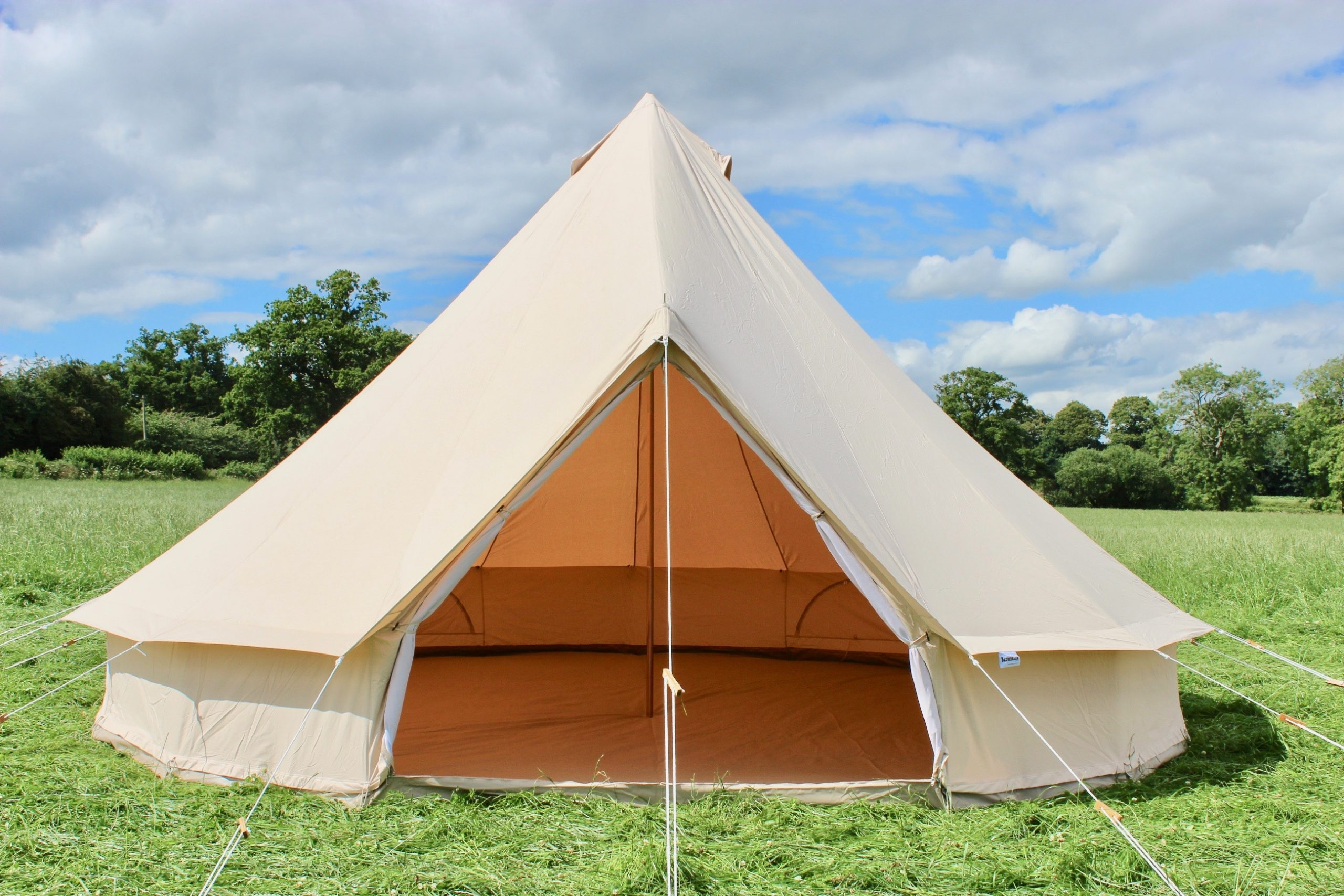
The bell tent by White Duck Outdoors is iconic for its single central pole and elegant aesthetic. It offers excellent ventilation and a large footprint, making it ideal for those who prioritize a cozy, breathable living space. Many full-timers prefer this for "glamping" setups.
3. Wall Tents (Outfitter Tents)
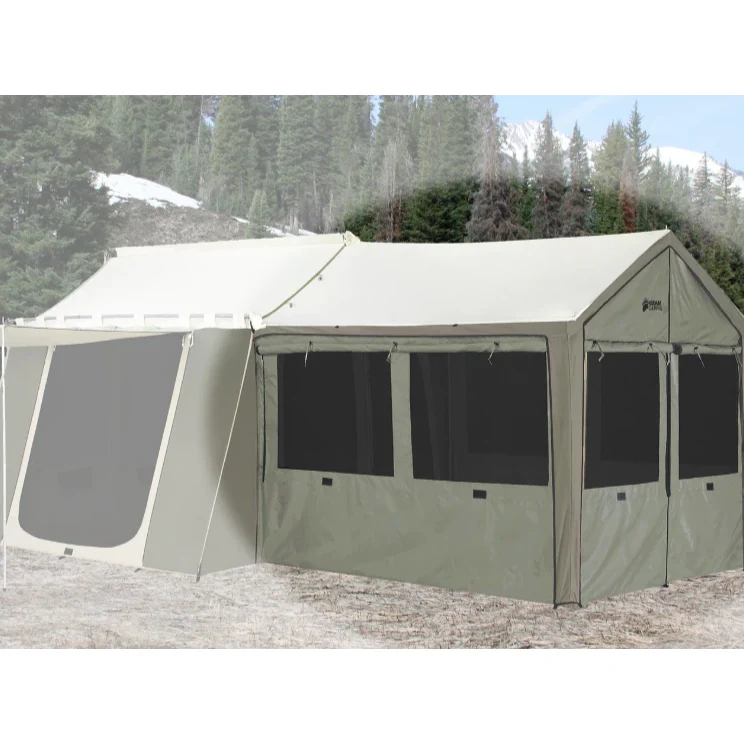
Often used as "outfitter" tents, wall tents maximize usable interior space with rectangular walls. This design is the easiest to furnish with real beds and tables. It feels the most like a traditional room, which helps many adjust to the lifestyle transition.
4. Geodesic Tents
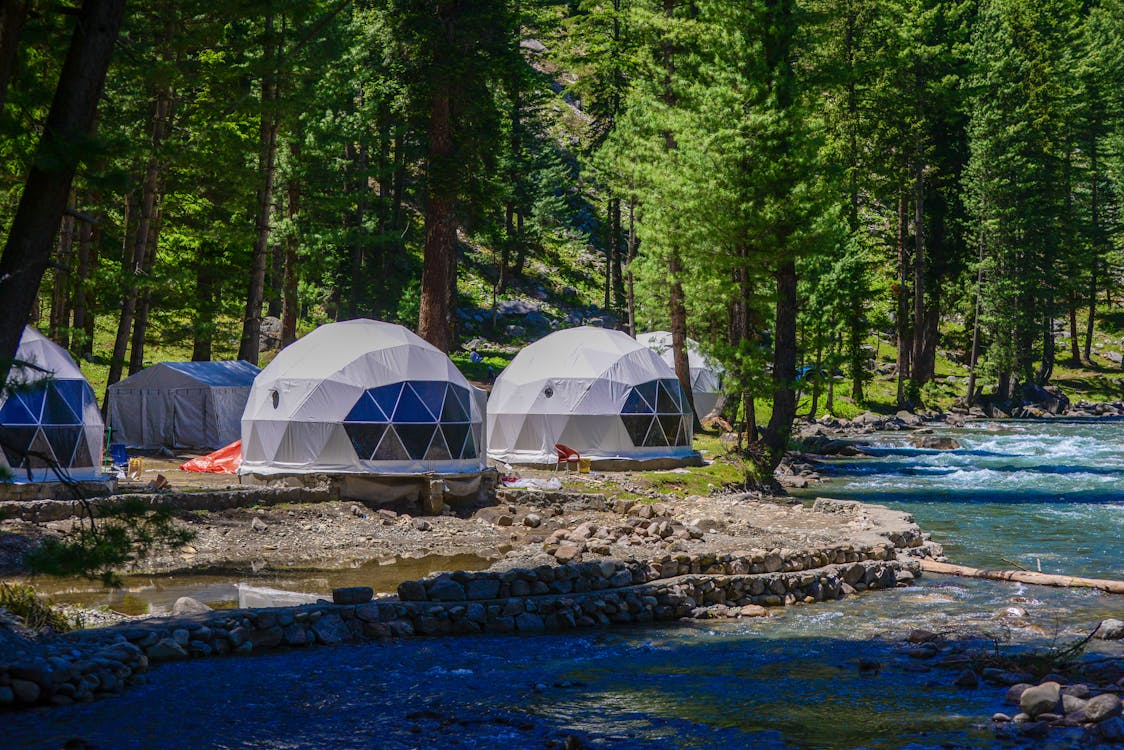
If you plan to live in high-wind or rugged terrain, a geodesic tent is your best ally. Its dome structure features multiple intersecting poles that distribute stress evenly. This is the ultimate choice for extreme weather reliability.
Essential Gear for the Full-Time Tenter
To turn a shelter into a home, you need a specific off-grid infrastructure. Focus on these three pillars: Sanitation, Water, and Power.
The Off-Grid Bathroom Solution
The Nature's Head Composting Toilet is the premier choice for tent living. It is a self-contained, waterless system that breaks down waste naturally without odors. This allows you to maintain modern hygiene standards without a septic connection.
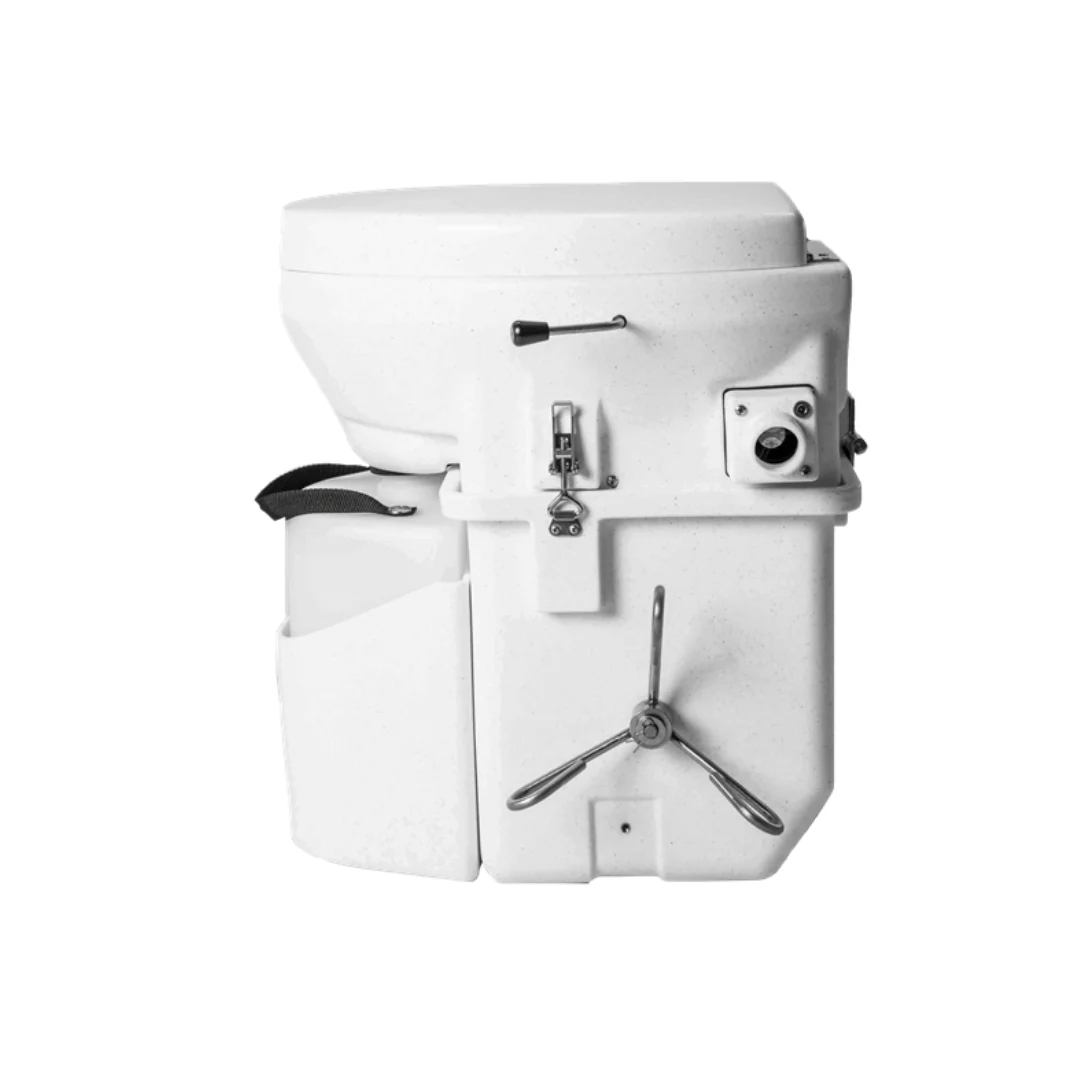
Safe Drinking Water Anywhere
The Travel Berkey Water Filter ensures your drinking water is safe by removing 200+ contaminants. It uses gravity alone to filter 2.75 gallons per hour. Because it requires no electricity, it is a "fail-safe" solution for the wild.
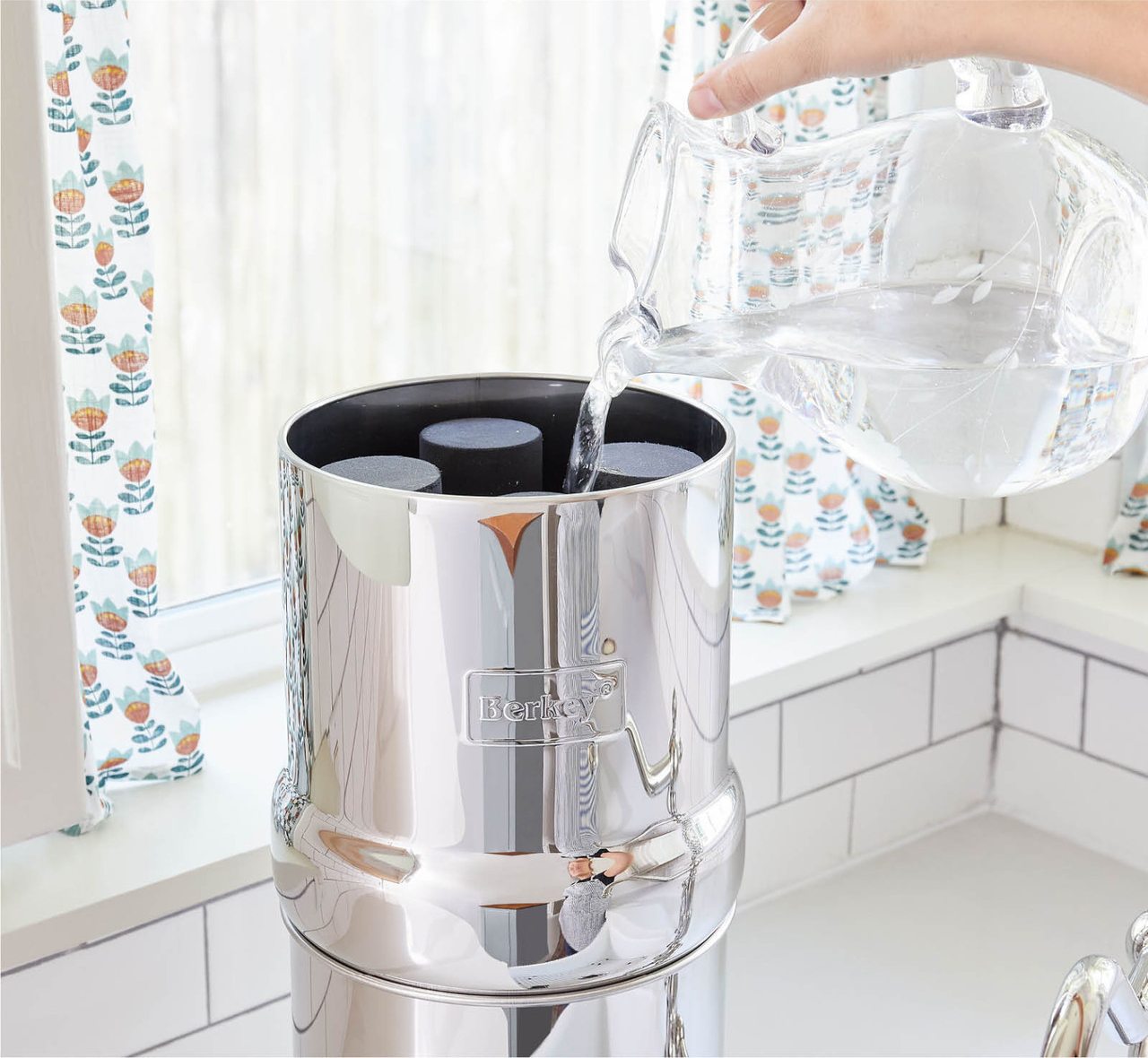
Reliable Solar Power
For modern everyday needs like lighting, the Anker Solix F3800 is a durable portable power station. You can pair it with 100W solar panels for a truly sustainable energy source. It is lightweight enough to move but powerful enough for essential appliances.

Comparing the Pros and Cons of Tent Life
| Pros | Cons |
|---|---|
| Deep connection with nature | Exposure to extreme weather challenges |
| Massive cost savings vs. traditional housing | Limited living and storage space |
| Minimalist, clutter-free lifestyle | Regular maintenance and upkeep required |
| Significantly reduced carbon footprint | Dependence on off-grid utility gear |
Where to Live in a Tent in the US?
- National Parks: Best for scenic beauty and basic amenities, but often have stay limits.
- Public Lands (BLM): Ideal for privacy and cost-free living, though they offer fewer amenities.
- Mild Climate Regions: The Southeast and Pacific Northwest reduce your heating and cooling demands.
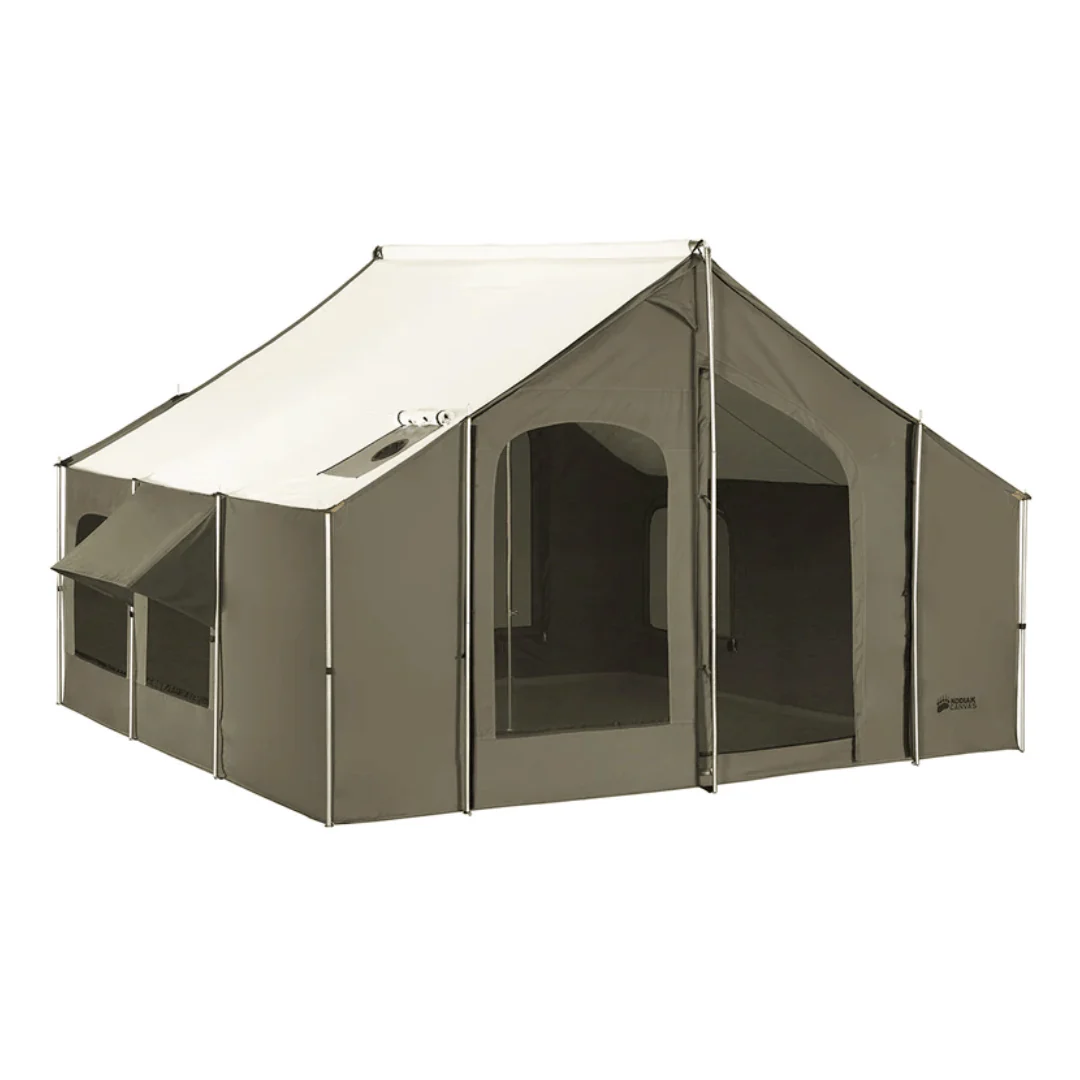
Conclusion: Ready to Make the Move?
Full-time tent living is a viable and enriching lifestyle for those willing to prepare. By investing in heavy-duty canvas and high-quality off-grid gear, you can create a sustainable home anywhere. Kodiak Canvas remains our top recommendation for long-term durability and comfort.

